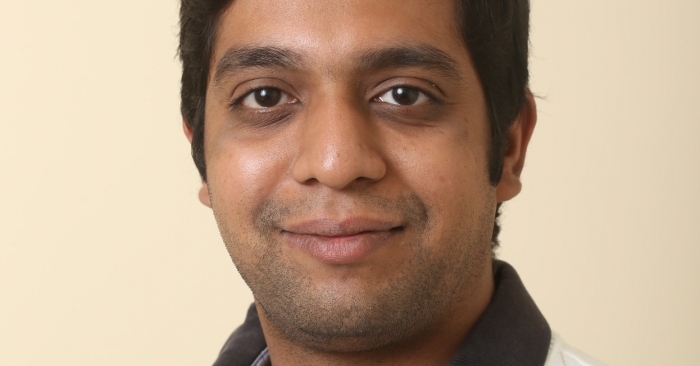Intent and motivation more important than knowledge and expertise while hiring for a startup
Abhay Kothari is talking to Libin Chacko Kurian about the Indian cold chain industry, the nature of his business, his journey, hiring strategy, how he helped his clients, tech strategy, financial health and future.

February 1, 2022: Graduated from IIT Kanpur as a chemical engineer in 2005, Abhay Kothari joined as a business leadership trainee at Hindustan Unilever (HUL), into manufacturing first and then the supply chain. He went to Harvard Business School for MBA and spent a couple of years in consulting in the US. He came back to India to immerse himself in the startup ecosystem. In 2015, he started working at Treebo Hotels. He was very clear that he would want to start something of his own which ended up in starting the asset-light cold chain company AbleCold Logistics with a focus on the quality of operations.
He is talking to Libin Chacko Kurian about the Indian cold chain industry, the nature of his business, his journey, hiring strategy, how he helped his clients, tech strategy, financial health and future.
Give me a perspective about the Indian temperature-controlled logistics industry and its evolution?
The temperature-controlled supply chain industry in India has been lagging in terms of sophistication, technology adoption and the basic evolution. For example, there are several startups that you would see in the dry logistics space, but in the cold chain that hasn't been there because of the complexity. However, the last three or four years have been very encouraging, because of consumer behaviour shift.
How other cold chain players are evolving? What is the potential that you could see? What are the gaps?
More than 90 percent of the market is unorganized. That's a huge deal. Within the organized market, players like Snowman Logistics, Coldman Logistics, ColdEX, ColdStar Logistics, Coldrush Logistics, have their core strengths in at least one vertical of the supply chain.
10 or 15 years ago, very few cold storages and reefer vehicles were there. Right now, Tier 1 and 2 cities have cold storage as well as reefers. Tier 3 and beyond is where it is a challenge.
With the arrival of the pandemic, there has been a huge growth of D2C brands. For example, a small ice cream startup has to establish its D2C deliveries. That requires a change in the way the cold storage operations and local distribution.
India is witnessing growth in terms of branded fruits and vegetables. It has always been the Kirana shop that you will blame if Apple is bad. Now you can blame the brand and the brand is concerned about its brand equity. And that is where a lot of the brands have now started using a cold supply chain.
We require a fundamental shift from just focusing on asset-heavy players to the need for a layer of asset-light operators who are focusing more on the quality of operations and able to provide an end to end solution.
Is AbleCold an asset-light company like that?
Yes, we do not own any of the assets in the supply chain, neither do we intend to. The fundamental way of solving this market is to have a very large, reliable, integrated network of cold supply chain assets, which is one part. The other part is the quality of operations and their needs to be standardized and monitored. We have chosen the latter. At the same time, we can generate enough value for the unorganized segment asset owners.
Take me through the journey of AbleCold and how it is positioned in this market? How big is AbleCold in terms of reefers you operate, warehouses you manage, clients you serve and the geographical reach?
We started in November 2017. Those last two months and the whole of 2018 was just spent understanding and maintaining end to end operations reliability. In 2020, within a couple of months since lockdown, one person from our team opened up 10 new cities without burning money. So that is when we started hiring our sales team for the first time in three years.
We had opened up 17 cities by September 2020. And post that we had put a stop to it because the intent was to say our model is scalable. We will get to at least 30 to 35 cities by the end of 2022.
Have you been equally cautious while building your team?
Our hiring philosophy has been fairly simple: knowledge and expertise is one part of it, but we try and prioritize the intent and motivation. Since the focus was on reliability, sustainability and scalability, the strategy has been extremely successful. The intent and motivation for any early-stage startup are far more important than knowledge and expertise.
Who are your clients? Which are the verticals you focus on?
Our clients are located across India and their movements are also happening everywhere. I can divide the overall market into three broad product segment categories, fruits and vegetables, pharmaceuticals, and processed foods. The processed food segment is where we have focused on building the business in the initial part of the business, while fruits and vegetables and pharmaceuticals were in our plan always.
How do you help your clients solve problems? Give me at least one case study?
One of our clients import the frozen seafood to Mumbai and distribute it across 15 to 20 cities in India. The product needs to be stored in all of these cities and then further sales happen.
Earlier, for 30 percent of his volume, goes with one organized player but unorganized segment handles the remaining. Dealing with so many players across different geographies is a challenge. Second, there are no standardized operations, some will charge on a pallet basis, some will charge on per kg basis, some will charge on per cubic feet basis at storage. The third issue was in terms of the primary movement, say from Mumbai to Calcutta. Every single time a vehicle is required, his team would have to go and negotiate rates and figure out what the current rate in the market is because the cold chain industry is heavily affected by seasonality.
We took over the complete primary movement and storage across India. His team got one single point of contact to manage all their primary movement and storage. My team also optimized the cost of storing between different cities, ensuring that you are running intercity in an optimized fashion. The conversations that my team has now with him is more around how to tackle the B2B segment or direct to consumer deliveries.
As a cold chain company offering reliable quality operations, how do you make sure that the temperature is maintained throughout?
For AbleCold, the bigger thing is not monitoring whether the temperature is correct or not, but monitoring the inputs, which ensure that the operations run in a way that a temperature breach will not happen.
For example, a temperature breach happens at cold storage. That's output and there's nothing I can do about it. But our focus is more on controlling, for example, the cold room door opening. That is an input, which is what we monitor and that is the place where the reliability in operation starts coming.
Tell me about your previous and current financial year in terms of revenue, profit, margins, business and growth?
Growth has been good for us in 2021. For example, the growth that we had registered from November 2020 to May 2021, double that growth we were able to register just in one month between June and July 2021. We are not the size of the largest player around. But if we continue on this growth path, we will get there in the matter of the next 12 months.
What we could expect from AbleCold soon in terms of expansion, technology, new clients and growth?
You can expect AbleCold to be India's largest network of reliable integrated cold chain solutions where big brands, small brands and distributors can come. Hopefully, we get to that stage where you see a small AbleCold mark on the ice cream you buy saying that it has gone through the right temperature across the supply chain.
This interview was originally published in Indian Transport & Logistics News' January - February 2022 issue.

Libin Chacko Kurian
Assistant Editor at STAT Publishing Group, he has eight years of experience in business journalism covering food & beverage, nutraceuticals and now logistics. His current passion is to understand the nuances of global supply chains and their current turmoil. Outside work, he is also interested in philosophy, history, birding and travelling. Mail him: libin@statpublishinggroup.com Follow on LinkedIn


